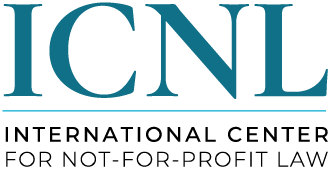The Climate and Clean Air Coalition (CCAC) is now accepting proposals to develop a National SLCP Plan and a National Methane Roadmap that will inform Niger’s 2025 Nationally Determined Contribution (NDC) update, accompanied by workshops and trainings on mitigation SLCPs across relevant sectors. This project responds to a request made by General Directorate for the Environment and Sustainable Development of the Ministry in charge of the Environment to build capacity across relevant ministries to assess and reduce short-lived climate pollutant (SLCP) emissions.
National SLCP Plan
Niger joined the CCAC in 2019 to boost national efforts to contribute to global goals through actions to reduce short-lived climate pollutants (SLCPs). This project will support Niger to develop a National SLCP Plan to identify and assess the co-benefits of SLCP mitigation measures and build national capacity to implement priorities measures and monitor progress. This work will inform the update of Niger’s NDC in 2025, identifying SLCP mitigation measures and/or SLCP reduction targets that can be integrated into international commitments.
National Methane Roadmap
National Methane Roadmaps leverage emerging data and techniques to enhance emissions inventories, identify compelling abatement strategies, and define methane related policies, programs, and funding streams for implementation. As a Core Implementer of the Global Methane Pledge, the CCAC is supporting the development of methane roadmaps to assist countries in achieving methane emissions reductions this decade.
Key Partners
The implementation of the activities will be placed under the direction of the General Directorate for the Environment and Sustainable Development of the Ministry in charge of the Environment. This will be done in collaboration with relevant institutions in the agriculture, forestry, and other land use (AFOLU) and energy sectors, which are priorities for the NDC.
Sector: National Planning
Funding Information
- Estimated budget: US$ 162,500
Expected Results
The project is expected to deliver at a minimum:
- The Government of Niger endorses the National SLCP Plan by the project end or shortly after.
- Indicator: Number of action plans, roadmaps, strategies, or other future plans with SLCP targets or mitigation measures
- Output 1.1 National SLCP Plan for Niger which includes at a minimum:
- Integrated GHG and SLCP emissions inventory and emissions projections
- Mitigation assessments
- Quantification of co-benefit
- Implementation pathways in priority SLCP sectors that include existing policies and plans
- Cost of implementation and sources of funding
- Summary for policy makers
- Output 1.1 National SLCP Plan for Niger which includes at a minimum:
- Indicator: Number of action plans, roadmaps, strategies, or other future plans with SLCP targets or mitigation measures
- The Government of Niger endorses the National Methane Roadmap by the end of the project of soon after.
- Indicator: Number of action plans, roadmaps, strategies, or other future plans with SLCP targets or mitigation measures
- Output 2.1. A National Methane Roadmap developed in line with a modality agreed with the CCAC Secretariat. Implementers developing methane roadmaps should also participate in the CCAC’s Methane Roadmap Action Programme (M-RAP), which provides virtual workshops on where to find data, tools, and guidelines for analysis. At a minimum, a National Methane Roadmap should include:
- A needs assessment which identifies gaps in existing commitments and policies for methane mitigation
- A mitigation assessment including priority mitigation measures, mitigation potential, and cost-benefit analysis of implementation in high-emitting sectors
- An assessment of the institutional arrangements for implementation
- A monitoring and evaluation framework for identified methane mitigation measures
- Identified funding sources to support implementation of the measures
- Output 2.1. A National Methane Roadmap developed in line with a modality agreed with the CCAC Secretariat. Implementers developing methane roadmaps should also participate in the CCAC’s Methane Roadmap Action Programme (M-RAP), which provides virtual workshops on where to find data, tools, and guidelines for analysis. At a minimum, a National Methane Roadmap should include:
- Indicator: Number of action plans, roadmaps, strategies, or other future plans with SLCP targets or mitigation measures
- The Government of Niger integrates SLCP measures or targets into its NDC by 2025.
- Indicator: Number of NDCs targeting SLCPs.
- Output 3.1: Recommendations to include SLCP emissions reductions measures and/or targets into Niger’s updated NDC in 2025
- Indicator: Number of NDCs targeting SLCPs.
- The Government of Niger has a demonstrated increased capacity to assess and address SLCP emissions by the end of the project.
- Indicator: Number of government entities with improved capacity for SLCP action.
- Output 4.1: Capacity building workshops to relevant government agencies on SLCP analysis, including on monitoring, reporting, and verification
- Indicator: Number of government entities with improved capacity for SLCP action.
Eligibility Criteria
- To be eligible for consideration, project proposals must meet the following requirements:
- Complete and submitted before the deadline
- Submitted by a non-governmental organization (NGO), intergovernmental organization (IGO), or other not-for-profit entity. Governments are not eligible to apply directly for funding in this call.
- Requested funding is within the estimated budget amount, or includes a clear justification for additional expenses
- Project duration is less than 24 months
- Budget criteria are met and spending caps on expenses are respected
- For-profit entities may only participate in the project as stakeholders, co-funders, or end users. Applicants are encouraged to include for-profit entities in the development of the project proposal and/or during project implementation if their ownership of the proposed solution is key to the project’s success.
Evaluation Criteria
Proposals will be evaluated against the following criteria:
- Presents a clear plan to achieve the required outcomes during the lifetime of the project or soon after
- Includes a plan or activities to enable the scaling up of, replication of, or sustained use of project results over time
- Sets out a clear approach for enabling or contributing to SLCP emissions reductions and resulting co-benefits
- Involves relevant stakeholders
- Approach is grounded in a strong understanding of relevant risks
- Complements other relevant initiatives, funding mechanisms, and existing policy processes
- Applicant demonstrates necessary capacity and experience to perform the work
- A realistic, cost-effective, and clearly justified budget and approach is proposed
- Project meets the minimum requirements for the OECD DAC gender equality marker Score 1
Selection Process
- A preliminary review of proposals submitted by the deadline will be conducted by members of the CCAC Secretariat, Funding Task Team, and Board, in consultation with relevant CCAC Partners.
- Shortlisted applicants will be invited to present their proposals in further detail and to respond to follow-up questions about their application.
- Successful applicants will be invited to develop a Project Implementation Plan and Detailed Budget in consultation with the CCAC Secretariat and relevant CCAC Partners.
For more information, visit Climate and Clean Air Coalition (CCAC).



